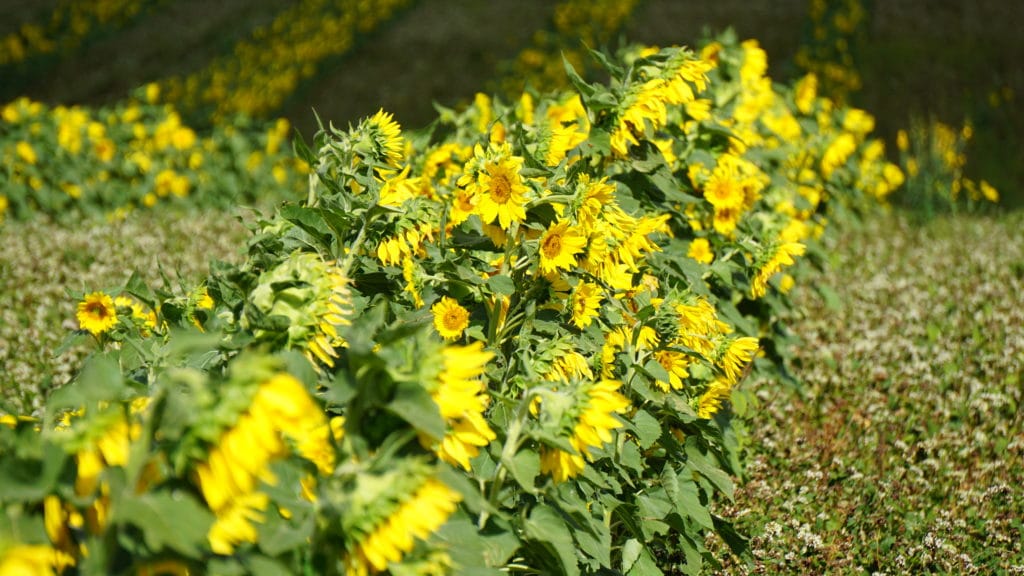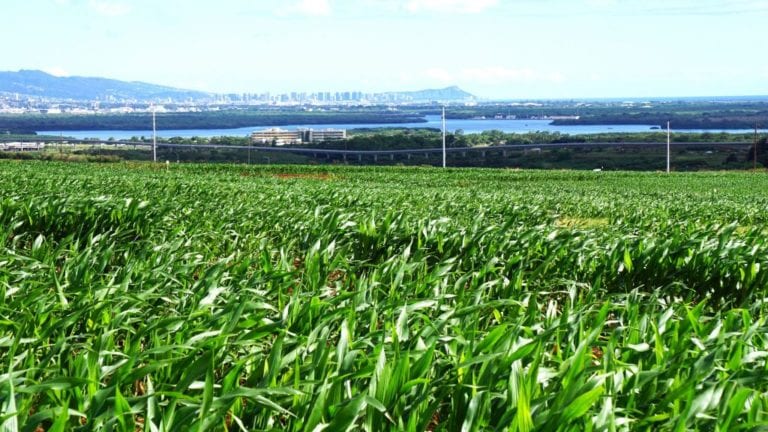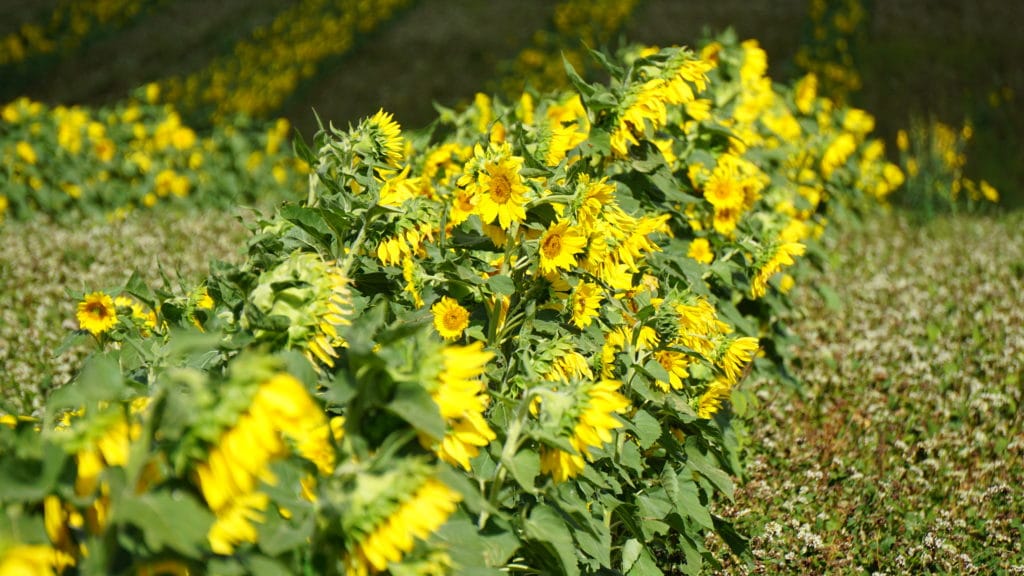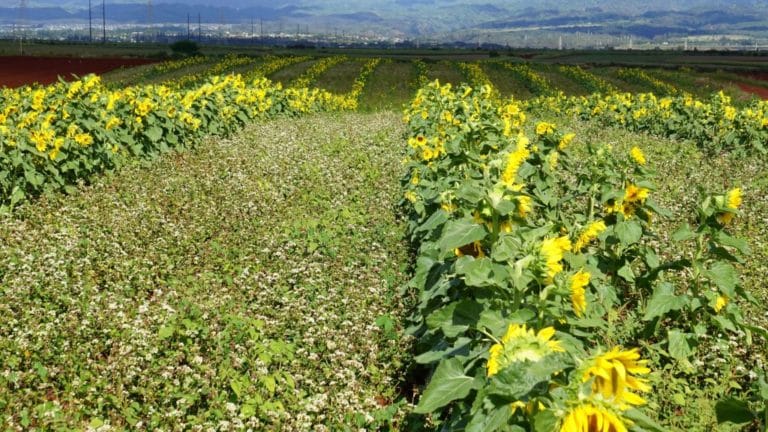- This Is Bayer
- Agriculture
- Consumer Health
- Pharmaceuticals
- Products
- Community
- News & Stories
- Careers
- This Is Bayer
- Agriculture
- Consumer Health
- Pharmaceuticals
- Products
- Community
- News & Stories
- Careers
Why We Designated 1,500 Acres As Important Agricultural Lands
The Hawaii State Land Use Commission recently approved Bayer’s voluntary designation of more than 1,500 acres of our farmland in Hawai`i as Important Agricultural Lands. This is great news for the future of local ag in Hawaii.
“Important Agricultural Lands” (IAL) was established by the State of Hawaii to preserve suitable agricultural lands for the long-term viability of ag in Hawaii. IAL designation makes it more difficult for these lands to be redirected to non-agricultural uses. That helps ensure prime ag lands will remain available for ag production for the foreseeable future.

To be considered for IAL designation, proposed acreages must meet the State’s IAL eligibility requirements including priorities for larger, contiguous acreages of high-quality ag land. Monsanto Hawaii worked with professional land planners and other experts to analyze our farmlands and identify those areas best suited for IAL.
As a result, we are proud that more than 1,500 acres of the farmland we own in Hawaii are now designated as Important Agricultural Lands. These land areas meet the State of Hawaii’s criteria for IAL eligibility and quality, and are currently being farmed by us or other ag businesses that lease the land from us including small farming operations.
IAL designation will not change our day-to-day farming operations, nor will it impact any of the other farmers that operate on our land. Designation also does not give us any special privileges or new rights to resources. However, IAL designation would make it harder for these lands to be shifted to other, non-agricultural uses.
Bayer is passionate about agriculture, and our roots in the islands go back 50 years when winter seed nurseries first started in Maui County. We share in a vision for the long-term success of Hawaii’s ag sector, and look forward to farming for the next 50 years and beyond.


